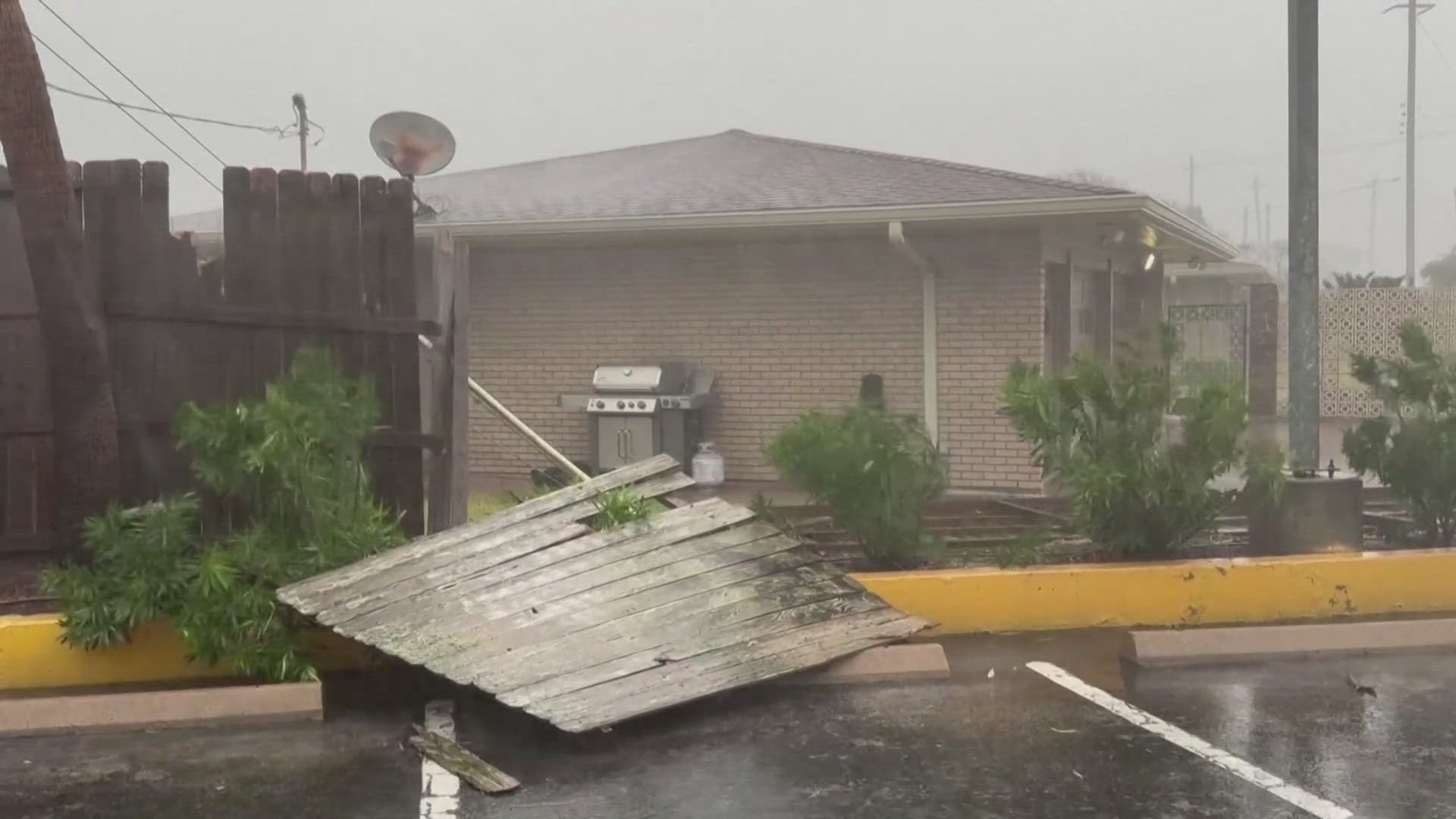INDIANAPOLIS — The remnants of Hurricane Beryl are coming toward Indiana, bringing with them heavy rains and potential flooding. Flooding is dangerous to people and properties, but there are some things you can do to prepare for Beryl and flooding in general:
- Make sure storm drains are clear. A major cause of street flooding is blocked storm drains. This includes trash, leaves and sticks that can be blocking the drain. If the drain is blocked and you can't clear it, make sure to contact your local stormwater provider. In Indianapolis, that's Citizens Energy Group (CEG). If you see flooding caused by drainage issues, call 317-924-3311. If it is a life-threatening emergency, call 911.
- Inspect your gutters and drainpipes to make sure they are clear of debris and pointed the right way. Downspouts should direct water away from your home and toward drainage.
- Prepare an emergency kit in case there is flooding. This should include bottled water, non-perishable food and a radio that can run off of batteries or a crank. You can find more information on emergency kits here.
- If flooding is likely, you can put up barriers like levees to try and keep water away. If flooding is likely, cities and counties will often provide sandbags to help people prepare. The Indiana Department of Homeland Security has a guide to filling and using sandbags.
- Once the rain starts, keep an eye on any nearby rivers, creeks or low-lying areas. Watch for rising water, and evacuate if you need to.
- There are also upgrades you can make to your home to minimize damage from any flooding that does happen.
(NOTE: the video above is from a previous report.)
Recovering from a flood
Make sure you know what your insurance will cover. Damage from the wind is covered by most insurance for homeowners, business owners and renters. But flooding normally isn't. FEMA offers its own flood insurance program — and you may even be required to have a policy depending on where your home is.
If you have suffered storm damage, it can be devastating. Filing insurance claims can seem overwhelming. That's why 13News consumer reporter Allison Gormly put together tips to help walk you through the process.
Safety during flooding
- Purchase a weather scanner and heed all flood and flash flood warnings issued by the National Weather Service.
- Be especially vigilant at night. Many drowning deaths occur at night when it is difficult to see water crossings.
- Do not drive around barricades at water crossings.
- Do not cross or enter flowing water. Driving fast through high water on the road is not a solution. Faster speeds create less tire contact with the road surface and increase your chance of crashing.
- Driving through standing water may affect your brakes. Test your brakes at low speeds as soon as you exit the water.
- If you choose to abandon your vehicle, respect the force of the water flow, you may be swept off your feet. After you exit the vehicle, seek higher ground.
- Be aware that road erosion may occur where there is running or standing water.
- Remember that six inches of water will reach the bottoms of most car doors. One foot of water will float many vehicles, and two feet of moving water can carry away most vehicles.
- If you find yourself stranded in floodwaters, remain calm and call 911. If you can do so safely, move to higher ground.

